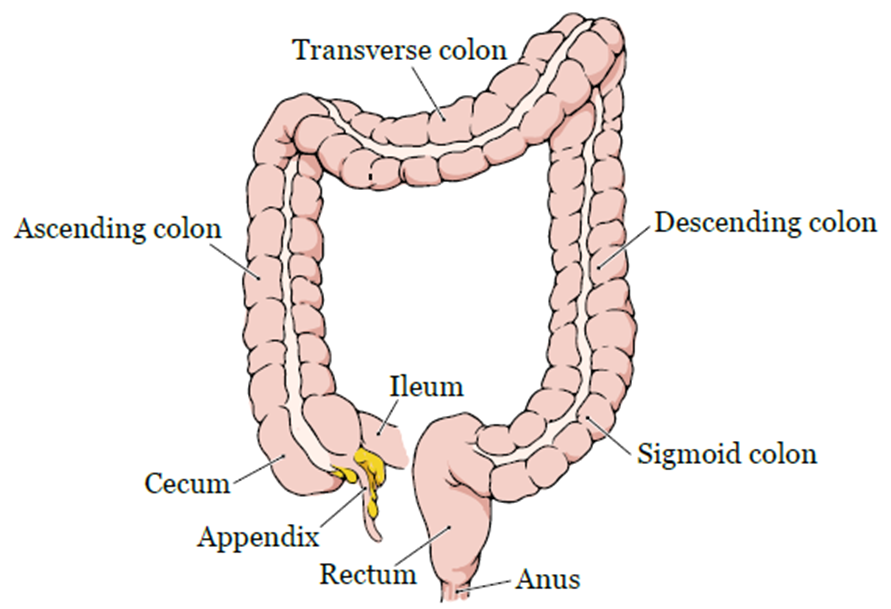A nurse is monitoring the urinary output of a client who had a colon resection. Which 24-hour output total indicates oliguria?
380 mL
550 mL
600 mL
720 mL
The Correct Answer is A
Choice A Reason:
A 24-hour urinary output of 380 mL indicates oliguria. Oliguria is defined as a urine output of less than 400-500 mL per day in adults. This condition can be caused by various factors, including dehydration, kidney dysfunction, or postoperative complications. Monitoring urine output is crucial for assessing kidney function and overall fluid balance, especially after major surgeries like a colon resection.

Choice B Reason:
A 24-hour urinary output of 550 mL is slightly above the threshold for oliguria. While it is still relatively low, it does not meet the strict criteria for oliguria, which is typically defined as less than 400-500 mL per day. This output suggests that the client is producing an adequate amount of urine, though it may still warrant close monitoring to ensure it does not decrease further.
Choice C Reason:
A 24-hour urinary output of 600 mL is within the normal range and does not indicate oliguria. Normal urine output for adults is generally considered to be around 800-2000 mL per day, depending on fluid intake and other factors. This output suggests that the client’s kidneys are functioning properly and that there is no immediate concern for oliguria.
Choice D Reason:
A 24-hour urinary output of 720 mL is also within the normal range and does not indicate oliguria. This output is closer to the lower end of the normal range but still suggests adequate kidney function. It is important to continue monitoring the client’s urine output to ensure it remains within a healthy range, especially after surgery.
Nursing Test Bank
Naxlex Comprehensive Predictor Exams
Related Questions
Correct Answer is C
Explanation
Choice A Reason:
Retrieving the blood from the laboratory and running each unit at an 8-hour rate is not appropriate. According to transfusion guidelines, blood products should be infused within 4 hours to prevent bacterial growth and reduce the risk of transfusion-related complications1. Infusing blood over 8 hours increases the risk of these complications.
Choice B Reason:
Notifying the laboratory to split the unit into 2 and then infusing each half for 4 hours is also not ideal. While this approach might seem to address the time constraint, it is not a standard practice and could lead to issues with blood product integrity and patient safety2. Blood products are typically not split unless there are specific protocols in place, and this is not a common intervention for managing infusion rates.
Choice C Reason:
Calling the HCP to question the order is the correct intervention. Blood transfusions must be completed within 4 hours to ensure patient safety and maintain the integrity of the blood product3. The nurse should advocate for the patient by questioning any orders that do not align with established guidelines and best practices.
Choice D Reason:
Infusing each unit for 8 hours is incorrect. The maximum duration for infusing a unit of blood is 4 hours4. Extending the infusion time beyond this limit increases the risk of complications such as bacterial contamination and reduced efficacy of the blood product.
Correct Answer is A
Explanation
Choice A Reason:
Metabolic Alkalosis is correct. The pH of 7.56 is above the normal range (7.35-7.45), indicating alkalosis. The HCO3 level of 33 mEq/L is also above the normal range (22-28 mEq/L), which suggests a metabolic cause. In metabolic alkalosis, the body has an excess of bicarbonate or a loss of hydrogen ions.
Choice B Reason:
Metabolic Acidosis is incorrect. Metabolic acidosis is characterized by a low pH (below 7.35) and a low HCO3 level (below 22 mEq/L). The given values indicate alkalosis, not acidosis.
Choice C Reason:
Respiratory Alkalosis is incorrect. Respiratory alkalosis is characterized by a high pH (above 7.45) and a low PaCO2 (below 35 mmHg). In this case, the PaCO2 is elevated (55 mmHg), which does not align with respiratory alkalosis.
Choice D Reason:
Respiratory Acidosis is incorrect. Respiratory acidosis is characterized by a low pH (below 7.35) and a high PaCO2 (above 45 mmHg). While the PaCO2 is elevated, the pH indicates alkalosis, not acidosis.
Whether you are a student looking to ace your exams or a practicing nurse seeking to enhance your expertise , our nursing education contents will empower you with the confidence and competence to make a difference in the lives of patients and become a respected leader in the healthcare field.
Visit Naxlex, invest in your future and unlock endless possibilities with our unparalleled nursing education contents today
Report Wrong Answer on the Current Question
Do you disagree with the answer? If yes, what is your expected answer? Explain.
Kindly be descriptive with the issue you are facing.
